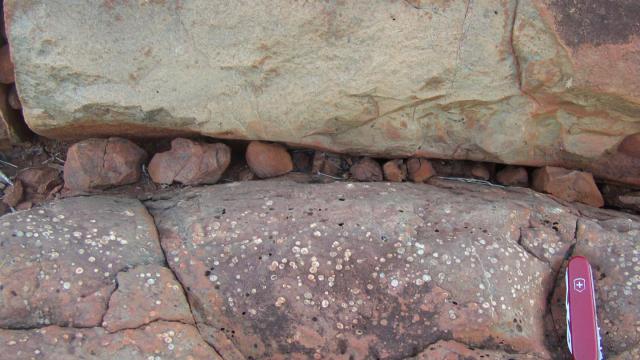Life has been transforming Earth’s atmosphere since the first single-celled organisms evolved. But few instances of atmospheric terraforming compare with what went down 2.7 billion years ago, when air pressure seems to have plummeted to less than half of its current value. What could have caused the worldwide depressurisation? According to a new hypothesis, the culprit was nitrogen-hungry microbes.
Scientists have long believed that our planet had a much thicker atmosphere in the distant past. This assumption comes from the observation that Earth had liquid oceans as early as four billion years ago, when the sun was only 70 per cent as luminous as it is today. To compensate for the weaker sun, a thick, greenhouse-gas rich atmosphere could have kept the world from freezing over.
But the ancient Earth was also a volatile place, subject to abrupt changes in atmospheric chemistry and climate. New research led by Sanjoy Som of the University of Washington indicates that at one point in history our planet had much less air, and that a major biological event may be responsible.
Writing in Nature Geoscience, Som and his colleagues describe the results of an analysis of trapped air bubbles found inside a 2.7 billion year old lava flow at the Beasley River in Western Australia. Using high-precision X-ray scans, the team was able to measure a decrease in the size of air bubbles between the top and bottom of the lava layer. This size change corresponds to the pressure exerted by Earth’s ancient atmosphere as the lava was cooling.
Their analysis revealed that atmospheric pressure 2.7 billion years ago was at most only half of its present value — a result that flies in the face of our understanding of the Earth during the Archaean period.
Now, scientists have to figure out what it means. If the result can be corroborated with other geologic evidence, it suggests something dramatic took place about three billion years ago to reduce the size of the atmosphere. And Som has a hunch as to what that something might be.
Other geochemical evidence suggests that around 3.2 billion years ago, bacteria developed mechanisms for transforming atmospheric nitrogen (N2 gas) into ammonia (NH3), a biologically-useful form. This process, called nitrogen fixation, was utterly essential to the evolution of complex life. Without it, plants and animals would have no way of accessing the nitrogen our cells need to build proteins and DNA.
Essentially, Som and others suspect that the ability to strip-mine the atmosphere for nitrogen caused air pressure to take a temporary nosedive. A few hundred million years later, the system rebounded when other metabolic processes started releasing nitrogen back into the atmosphere.
The researchers emphasise that this is just a hypothesis — one that’s supported by a single striking result. But if correct, the implications go far beyond satisfying our curiosities about deep time. They could help us find life on other worlds.
By building an accurate picture of the gases present in our atmosphere when life was getting started, we’ll have a better chance spotting the signatures of life in the air of distant exoplanets. If Earth’s air pressure three billion years ago was way lower than we thought, then perhaps the surface was kept warm by a higher concentration of potent greenhouse gases like methane.
So, for the sake of the aliens, let’s hope geologists figure out what the hell Earth’s nitrogen-fixing bacteria were up to back in the day. And for our own sake, let’s be grateful they eventually settled down.
[Nature Geoscience h/t New Scientist]
Top: A lava flow from Australia’s Beasley River, whose air bubbles were examined to study ancient air pressure. Image: Sanjoy Som/University of Washington
